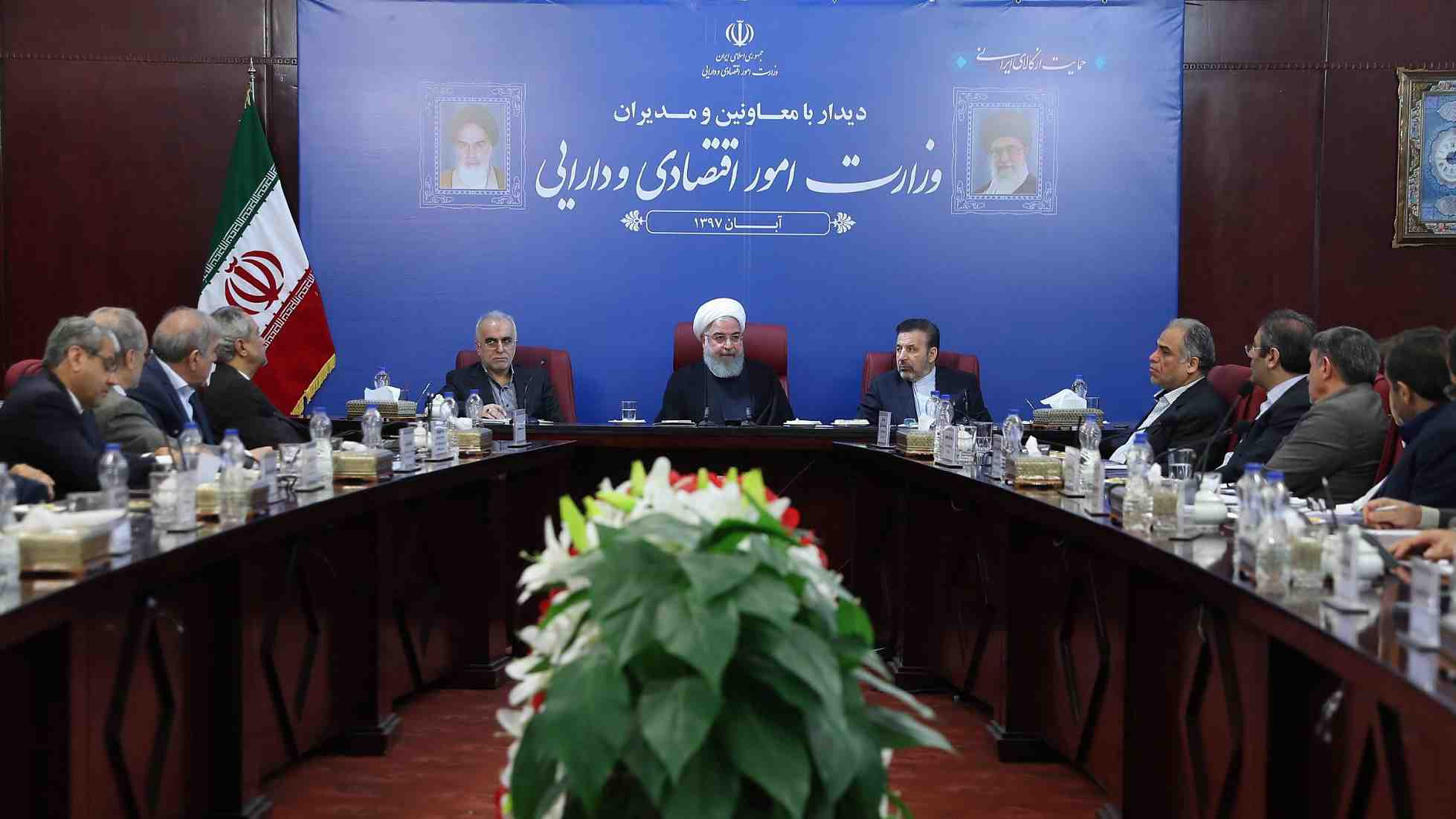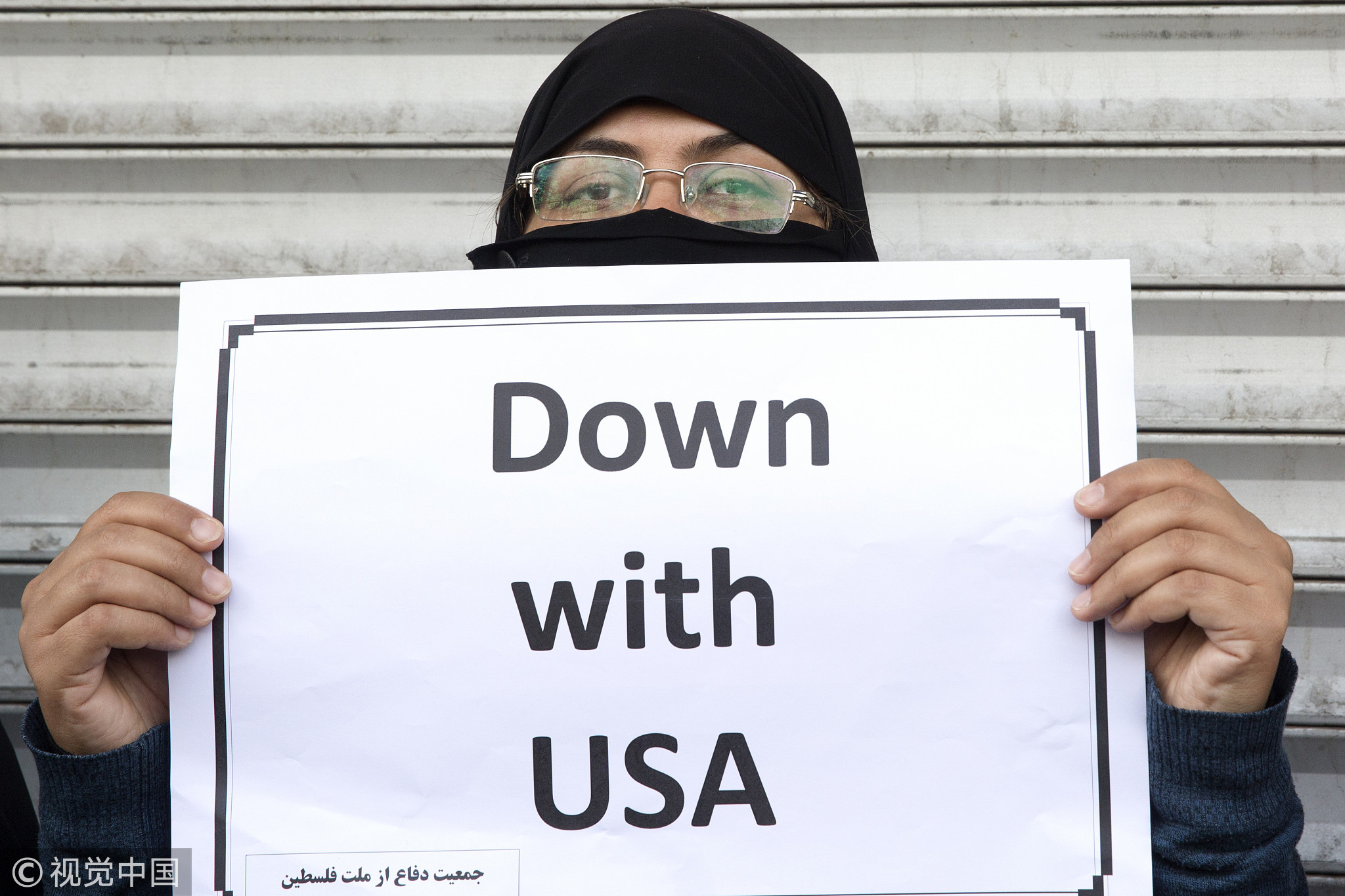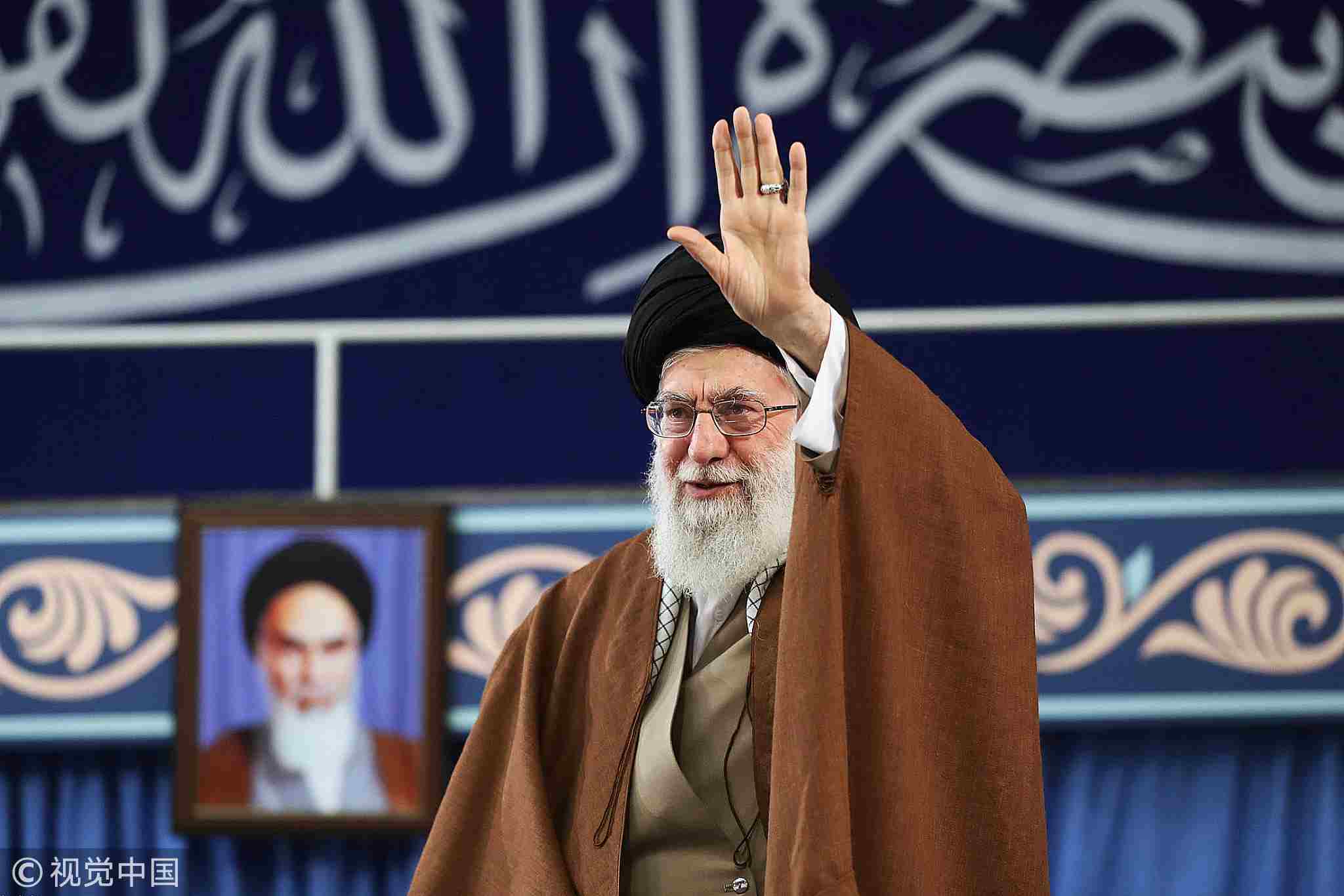
Opinions
17:08, 12-Nov-2018
Opinion: Why US sanctions on Iran won't work
Updated
16:39, 15-Nov-2018
Dong Yue

Editor's note: Dong Yue is an international news editor based in Beijing. The article reflects the author's opinion, and not necessarily the views of CGTN.
On November 5, the US re-imposed sanctions on Iran, which had previously been lifted under the Joint Comprehensive Plan of Action (JCPOA), or the Iran nuclear deal that was reached in 2015.
However, the renewed sanctions will not be able to achieve their intended objectives for three reasons.
First, the re-imposed sanctions by the US lack legitimacy.
Since the JCPOA came into effect, Iran has maintained a good record in observing the agreement.
The International Atomic Energy Agency (IAEA) has confirmed in 12 consecutive reports that Iran has been abiding by its commitments under the agreement.

An Iranian protester holds a sign during the 39th anniversary of the 1979 United States Embassy takeover in front of the former American embassy in Tehran, Iran, November 4, 2018. /VCG Photo
An Iranian protester holds a sign during the 39th anniversary of the 1979 United States Embassy takeover in front of the former American embassy in Tehran, Iran, November 4, 2018. /VCG Photo
No violation of the agreement by Iran means that the US sanctions lack a moral or legal basis, undermining the legitimacy needed for the sanctions.
Another factor that would impair the efficiency of the sanctions relates to the lack of consensus in the decision-making.
The resumption of the sanctions against Iran is clearly a unilateral decision made by the United States. It is not a collective decision made by the relevant parties of the JCPOA, nor has it won support from the majority of the international community.
The United States is addicted to unilateralism and the decision to re-impose sanctions is strongly condemned by other signatories of the agreement, which further weakens the sanctions' legitimacy.
The unilateral nature of the sanctions limits the level of international participation. Even the US' allies in Europe will not cooperate, both for security and economic reasons.
The European Union (EU) deems the JCPOA a key element of the global nuclear non-proliferation program and important for maintaining regional and global security and has condemned the US' withdrawal.
After the US administration announced it would snap back the sanctions, the EU, France, Germany and the UK, came out against the sanctions, calling the Iran nuclear agreement "crucial for the security of Europe, the region, and the entire world."
The US sanctions will also hurt some EU companies doing business with Iran. In the statement, the EU defended its aim to "protect European economic operators engaged in legitimate business with Iran, in accordance with EU law and with UN Security Council resolution 2231."

Iran's Supreme leader Khamenei was speaking during meeting with students on the eve of the anniversary of the 1979 takeover of the US embassy in Tehran, Iran, November 3, 2018.
Iran's Supreme leader Khamenei was speaking during meeting with students on the eve of the anniversary of the 1979 takeover of the US embassy in Tehran, Iran, November 3, 2018.
Many other countries, even including Iran's long-time rival Turkey, have denounced the US sanctions and said they would not take part in it. The limited participation by other countries will dramatically reduce the effect of the US sanctions.
Lastly, the sanctions will be ineffective because their actual impact is not deep enough to rock Iran's economy.
The US administration once stated that it aimed to reduce Iran's oil exports to the level of zero. However, when implementing the sanctions, it granted several countries and regions temporary exemptions to enable them to keep importing oil from Iran. This means the "zero" goal set by the US administration will not be achieved.
Moreover, some countries will even continue their oil imports from Iran regardless or after the exemptions expire.
Iran has been engaged in a confrontation with the United States for some 40 years, which gives the country abundant experience in coping with sanctions.
When facing the tough economic sanctions from the United States and the EU in 2012, Iran proposed the concept of a "resistance economy." Then in 2014, Iran outlined 24 points in the "resistance economy" plan, which underlined the knowledge-based high-tech industries, domestic production and reducing dependence on imports, to promote the country's self-reliance.
To a certain extent, after several years' of implementing the plan, Iran has achieved the goal of self-sufficiency. Therefore, It's almost a "mission impossible" for the United States to bring down Iran through the re-imposed sanctions.
(Cover: Iranian President Hassan Rouhani (C) attends a meeting with directors and deputy ministers of economy and finance in Tehran, Iran on November 5, 2018. /VCG Photo)
(If you want to contribute and have specific expertise, contact us at opinions@cgtn.com)

SITEMAP
Copyright © 2018 CGTN. Beijing ICP prepared NO.16065310-3
Copyright © 2018 CGTN. Beijing ICP prepared NO.16065310-3